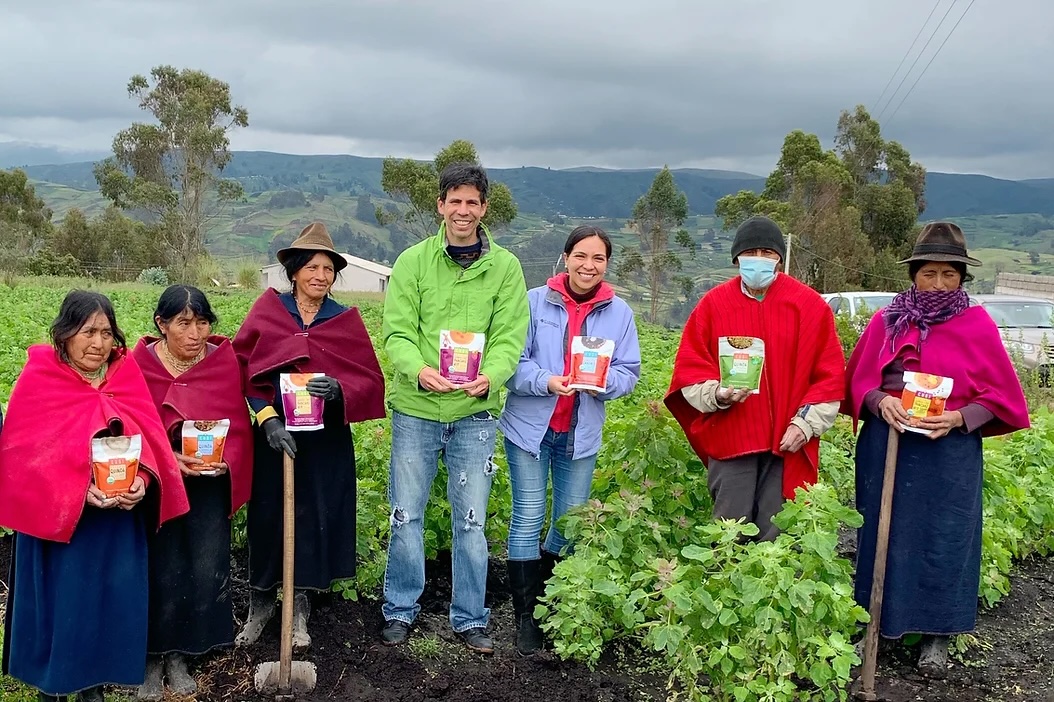Good Friday evening, ImpactAlpha readers. And a Veteran’s Day salute to our U.S. readers.
#Featured: The Brief’s Big Ten
1. Cities, states and companies are carrying the U.S. torch at climate talks in Germany. There’s no snazzy U.S. government pavilion at COP23 in Bonn, Germany. Instead, the American action is at the area set up by U.S. state and local leaders like California’s Jerry Brown and former New York City Mayor Michael Bloomberg. A new report is set to aggregate the commitments of “non-Party actors” on the full range of climate-related activities across the whole of U.S. society. What else to watch:
A bluffer’s guide to the Bonn — or is it Fiji? — climate talks
2. Climate investors are looking beyond renewables. Renewables, at about $300 billion a year, are only part of the $1 trillion annual market in “climate business solutions,” according to the International Finance Corp., an arm of the World Bank. Green buildings ($388 billion annually), climate-smart urban transport ($288 billion), water recycling ($23 billion), and municipal waste management ($160 billion) could all be ramped up six-fold or more. Read on:
Climate investors look beyond renewables as Bonn gets down to business
3. Watch solar and storage cost curves to forecast off-grid growth. The dramatic drop in the price of solar panels and lithium-ion batteries, other advances in energy storage, and new business models drove a 41% growth in the number of off-grid solar systems around the world last year. Bloomberg New Energy Finance predicts that fully one in three households globally will get off-grid electricity by the end of this decade. Take a look:
Falling storage costs drive growth of off-grid solar
4. The PRIME Coalition is de-risking early-stage climate solutions. Climate solutions often come with high upfront capital costs and long product-development cycles, scaring off venture capitalists. The PRIME Coalition, a non-profit cleantech intermediary, lines up deals for philanthropic partners who can deploy flexible grants and program-related investments to help de-risk early-stage climate technologies. PRIME completed its sixth investment this week. Learn about PRIME:
Water-tech: PRIME Coalition seeds Anfiro’s desalination solution
5. And solving inequality can drive corporate growth. If you’re a CEO running a major corporation or a new business founder looking for an edge, finding new ways to foster inclusion growth “can have a significant impact on the value of corporations,” says Audrey Choi, Morgan Stanley’s chief marketing and chief sustainability officer. A new report from the global bank puts research and best-practices behind the business case for solving inequality. Find out how:
Tapping the inclusive-growth business opportunity
6. In Nigeria, investment capital is flowing to startups meeting basic needs. Nigeria is Africa’s most populous country, with 186 million people. But still too few have access to financial services, stable electricity, mobile phones or the internet. An upswell in fundraising shows venture capital and foreign investors are paying attention to startups addressing basic service gaps for a huge market. Read an overview:
Tech investments target Nigeria’s unmet consumer needs
7. Argentina is dangling impact to attract foreign investors. Argentina President Mauricio Macri’s plan to rebuild the country’s investment environment includes boosting social entrepreneurship to attract impact investors. But rather than compete for a slice of the “mini-cake” of impact capital in Latin America, Sebastian Welisiejko, now a senior member of Argentina’s Cabinet Office, told ImpactAlpha, “we need to bake new pies, a larger pie, a whole impact bakery.” More on the strategy:
Argentina wants a slice of the impact investment pie
8. Private equity is a growing source of growth capital for impact-oriented companies. TPG Growth’s $2 billion The Rise Fund. Bain Capital’s $390 million Double Impact Fund. Impact-oriented companies have access to a growing pool of capital for growth and buyouts. This week, Builders Fund, a San Francisco-based private equity fund, backed solar lantern-maker MPOWERD and NewWorld Capital, an environmentally-focused private equity firm, led the financing of water infrastructure firm, Aquam. Read up on the Builders Fund deal:
The Builders Fund takes stake in solar-lantern maker MPOWERD
And the NewWorld Capital deal:
Aquam raises $26 million to improve water infrastructure resiliency
9. Universal owners have a stake in the future — all of it. Jay Coen Gilbert, co-founder of B Lab, sat down with Rick Alexander, B Lab’s head of legal policy, to talk about the growing realization among “universal owners,” investors whose broad diversified portfolios means they effectively “own the market,” that they need to think more systemically about their portfolios. One implication: huge pension and sovereign wealth funds ought not be focused on beating the market, but on improving it. The benefit corporation may help:
Why that $200 hamburger may not maximize shareholder value after all
10. On Veteran’s Day, let’s salute veteran entrepreneurs. Less than 5% of post-9/11 veterans have started their own businesses, compared with nearly half of World War II veterans. One reason: limited access to capital. Paul Capon, himself a U.S. Air Force veteran, founded LunaCap in 2014 to bet on under-tapped pools of talent. The venture capital firm is now raising a second, $30 million fund, to back veteran founders, as well as women, and minority entrepreneurs. The portfolio from LunaCap’s first fund includes Down the Road Beer Company in Everett, Mass. and Paul Evans shoe company, which are both veteran-run. Raise a glass to veterans:
LunaCap Ventures’ second fund will back veteran entrepreneurs
That’s a wrap. Have a great weekend! Please send news and comments to [email protected].











